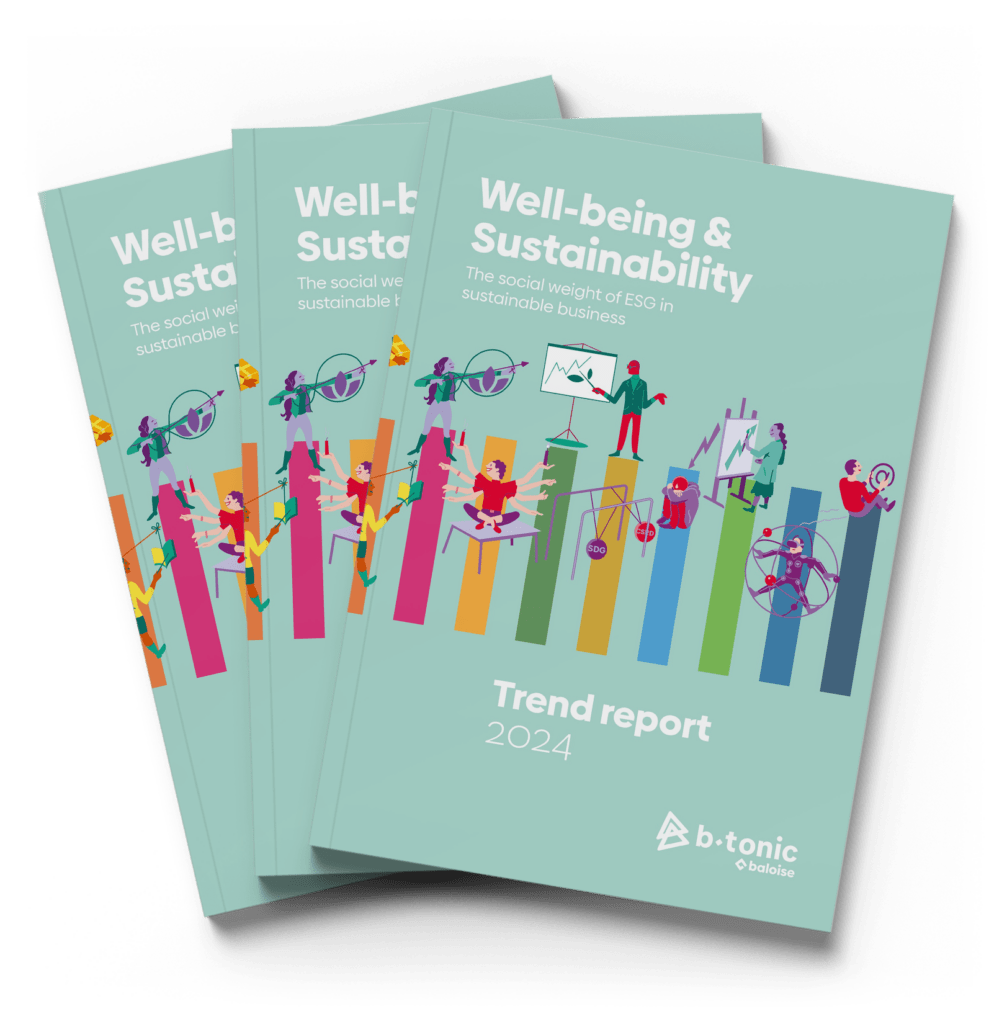In 15 years, the amount of long-term absentees in Belgium has doubled to half a million. An increase that is not as strong in any other country. And if we do not thoroughly tackle our well-being policy, our country will be confronted with 600.000 (!) long-term absentees, as calculated by the Federal Planning Bureau. An activating step by step plan presents itself.
Today Belgium has half a million long-term absentees. And it is mostly mental health issues causing the large increase. According to the figures of RIZIV/INAMI, the number of long-term absentees increased between 2016 and 2020 due to burnout and depression with 38,72%: +41,50% for depression, +32,53% for burnout.
Out of all the inactive people – persons on social security, housemen and housewives – long-term absentees are the largest group. During a time governments want to get 80% of Belgians working, there is clearly an increasingly large group that could work but falls absent due to illness. An evolution that comes with a yearly price tag of almost 11 billion euros for social security.
Our partner Federgon, the association for HR managers, wrote a paper ‘Uitvallen, opstaan en opnieuw aan de slag’ (“Falling absent, getting back up and back to work”, eds.) and this is thus still a hot topic. The paper provides a decisive plan of action that is based upon four pillars.

1. Anticipation: A preventive well-being policy is the foundation of this.
Prevention is better and also cheaper than cure. In the first place, we need to do all we can to avoid that people are absent long-term. A societal focus on both mental and physical well-being of our population is essential within this framework.
2. Investment: Focus on customisation and make sure that as many people as possible find their way back to the job market.
As a society, we need to take on our responsibility and commit fully to reintegration. As every situation is different and each person starts from a different situation, custom work is required here.
3. Activation: Explore and facilitate work resumption, with another employer if need be.
It is important that all possible options regarding work resumption are considered when it comes to reintegration of long-term absentees.
4. Integration: of job market knowledge and medical expertise for the purpose of returning to the job market.
The first step is informing and raising awareness of (practising) doctors about the additional value of work and about how in some cases work can be an asset in the healing process.
You can read the full paper here. In addition, Federgon emphasises the importance of measuring the People Sustainability of an organisation to guarantee sustainability regarding the personnel policy. A valuable instrument that can help with this is the People Sustainability Scan.





